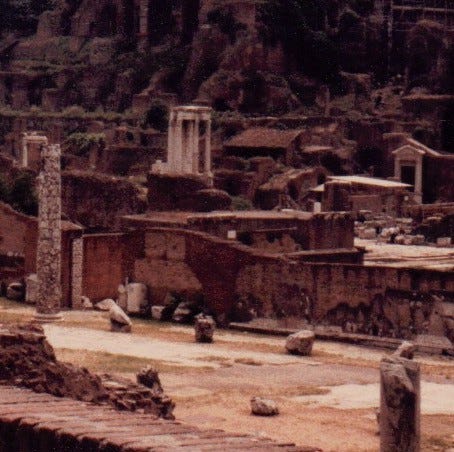Today’s Contemplation: Collapse Cometh CLXXVII

Despite Warnings We Have Continued Business-As-Usual and Doubled-Down On Our Avoidance Behaviours
The following is my comment on The Honest Sorcerer’s latest piece that highlights the impossibility of bypassing thermodynamic laws (especially Entropy) in our quest for the Holy Grail of a sustainable civilisation; in this instance via a ‘circular’ economy.
While what you argue appears self-evident for the increasingly unlikely prospects of the ‘green/clean’ utopian future a lot of ‘futurists’ predict will unfold as the seemingly endless stream of technological ‘breakthroughs’ come to fruition, it seems that the vast majority of people who even show some awareness of our predicament will ignore/deny/rationalise away the evidence (universal thermodynamic laws or not) in order to cling to their dreams of infinite growth and ‘progress’ upon a finite planet. I even find the argument about physical, material limits is denied by many/most of these people.
This notion that limits are meaningless appears to have got its legs from economists and business ‘leaders’ who have argued that technological progress and human ingenuity trump material limits, particularly due to the idea of infinite substitutability and recycling. History has apparently demonstrated again and again that humans adapt their technology and resource use by finding alternative and/or new sources for their material wants.
What this approach does, however, is not only focus upon a relatively small slice of human pre/history where the leveraging of a number of catalysts to technological change have occurred (especially the creation of debt-/credit-based fiat currency and hydrocarbon use that both allow the pulling of finite resources from the future into the present), but cherry picks behaviours and events.
The processes that contribute to the recurrent collapse of complex societies are minimised/ignored, with a lot of rationalising that ‘this time is different’. We can recycle. We can elect ‘wise’ leaders’. We can work together. We can avoid past mistakes. We can mine passing asteroids. We can innovate. We can migrate to other planets. We can overcome limits. We can adapt. We can slow/control/halt the growth imperative. We can find a means of creating limitless ‘clean’ energy. We can do anything we imagine and set our minds to.
And while these assertions can make us feel better by avoiding the anxieties that arise when we frame things from a perspective where these ‘hopes’ are viewed as magical thinking that avoids reality, they are leading us to pursue the ‘business-as-usual’ scenario (of the 13 possible) painted by the original Limits to Growth study. A scenario where human ecological overshoot and the consequential collapse of population and industrial society were imminent during our current century.
The Limits to Growth researchers proposed that it was possible to avoid this scenario and achieve a sustainable lifestyle but required significant changes be made as soon as possible. In the intervening years, however, our species seems to have ignored the warnings and ‘motored’ ahead with ‘business-as-usual’. And rather than heed the signals our planet and its other species have been sending us (and increasingly so over the past handful of decades), we’ve doubled down on our avoidance behaviours — especially the stories we share about all this and how everything will be alright…somehow but mostly because of human ingenuity and technology, those god-like qualities we storytelling apes possess.